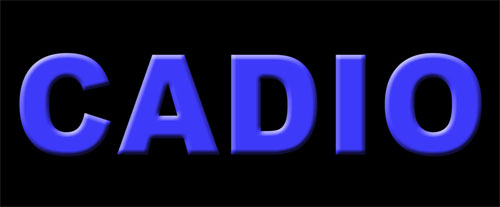Let’s examine the meaning of Radio……
According to Article 4 Section 4 on the Code of Ethics on Advertising regulated by Adboard (Advertising Board of the Philippines), and it says; Advertising copy, slogan or terms should not mislead, or confuse the consumer as to the materials, content, origin, utility or function of any product or service. Meaning, as marketers and advertising practitioners, we should not use terms that could give a different meaning that will lead our target audience to a wrong thought. Nowadays, we can hear music and commercials in places like stores, restaurants, boats, boutiques and other coverage that claims that they have a radio station. In the Philippines, hearing something from a store that says “NationalBookstore Radio” is like saying that this establishment has a radio station. Their business is selling office, school supplies and other items. Having a radio station needs a permit from NTC. Why invest on a radio station that is so expensive which is not the nature of their business. If this is not a real radio station, then they should not use the term “NationalBookstore Radio.” We all know that radio is a telecommunications term. According to Merriam-Webster, (n) of or relating to electric currents or phenomena (as electromagnetic radiation) of frequencies between about 3000 hertz and 300 gigahertz or transmitted by radio. In Wikipedia, radio is the transmission of signals, by modulation of electromagnetic waves with frequencies below those of visible light. Electromagnetic radiation travels by means of oscillating electromagnetic fields that pass through the air and the vacuum of space. Information is carried by systematically changing (modulating) some property of the radiated waves, such as amplitude, frequency, or phase. When radio waves pass an electrical conductor, the oscillating fields induce an alternating current in the conductor. This can be detected and transformed into sound or other signals that carry information.
In our own understanding, there are three radio classifications:
• Two-way radio – it has a transmitter, receiver-sender gadget through oral communication.
• Radio Station – it sends broadcast message using a transmitter to radio set.
• Radio Set – it receives the broadcast message with the help of its antenna.
So if we hear an FM radio program format in Chowking that’s says “Chowking Radio;” what do you think is that? Wow, Chowking has a radio station. How did they do that? What about Superferry radio? Is this a store or a boat? If it’s done in a boat then, should they call it in-store radio or in-boat radio. In-store radio is like saying a radio in a store. Otherwise, it is wrong to say that a radio in a boat is called in-store radio. Let’s find out. Based on Wikipedia, boat is a watercraft of modest size designed to float or plane, to provide passage across water while a store may refer to a retail store type such as:
• Anchor store
• Big-box store
• Chain store
• Confectionery store
• Convenience store
• Department store
• Discount store
• General store
• Grocery store
• Hardware store
• Health food store
• Hobby store
• Hypermarket
• Liquor store
• Newsagent
• Online shopping
• Outlet store
• Pet store
• Specialty store
• State store
• Supermarket
• Surplus store
• Survival store
• Toy store
• Variety store
• Warehouse club
• Warehouse store
In the military:
• Ammunition dump
• Magazine (artillery)
See also
• Storage (disambiguation)
• Store and forward
• Store-within-a-store
A retail store is also retailing according to Wikipedia. It consists of the sale of goods or merchandise from a fixed location, such as a department store, boutique or kiosk, or by mail, in small or individual lots for direct consumption by the purchaser.
Ok, is a boat a store? Off course it’s not. So why say that the boat has an in-store radio, in the case of Superferry Radio?
With all of these in mind, we conclude that those new companies that are using the term “radio” just to come-up with a name is misleading the audience or market by getting their attention that leads to a different understanding of what really radio is. We don’t know why they are really using a wrong term but for the sake of promotion or by getting people’s attention, they will do so. Bottom line, it’s really good to have a real radio station the fact that your business is not into broadcasting.
Now here’s a way that would give you an FM radio sound in stores and other establishments: record and mix down music and commercials that would sound like an FM radio program using Adobe Audition software and later burn it on CD; then play it in a CD or DVD player. This would really sound like a live FM radio broadcast. Is this what establishments and providers are really referring to? Is this In-Store Radio? What do you think?
Sunday, January 24, 2010
Subscribe to:
Post Comments (Atom)

































No comments:
Post a Comment